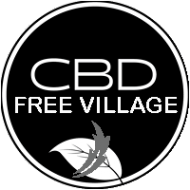Suddenly, it seems, CBD is everywhere.
At an upscale downtown Charleston hotel, guests can get a soothing massage with the hemp-derived oil at the lodging’s spa.
Up on King Street, a new retailer is setting up shop to sell what’s been touted as a magical elixir that can reduce anxiety, help inflammation and generally promote wellness.
Pharmacy giant Walgreens recently announced it will introduce CBD products in 1,500 stores across several states, including South Carolina. Rival retailer CVS is expected to follow suit.
On a billboard along Interstate 26, a Mount Pleasant pharmacy touts it. Along small-town streets, roadside stakes trumpet it’s “Coming soon,” and in every community, retail shops are sprouting up to offer the new hemp-based product.
Meanwhile, on James Island a honey producer wants to establish a manufacturing operation with CBD-infused offerings.
That’s where the rub comes in.
South Carolina legalized CBD, or cannabidiol, in 2017 because it produces only trace amounts of the psychoactive component tetrahydrocannabinol, or THC, found in marijuana. It cannot get a person high.
CBD and food
Earlier this year, the S.C. Department of Agriculture banned CBD as an added ingredient in both human and animal food products. That came after the U.S. Food and Drug Administration approved a purified form of the substance last year for a drug used to treat certain seizure disorders.
The state agency, along with the S.C. Department of Health and Environmental Control, later clarified the policy. They allowed manufacturers to add full spectrum hemp extract, or hemp oil, derived from genetically bred hemp to food products as long as CBD is not mentioned on the labels.
John Berdux, CEO and co-founder of honey manufacturer Apis Mercantile, said the policy “doesn’t make a lick of sense,” but he and business partner Liam Becker, both College of Charleston graduates, are moving forward with plans to launch a small operation on James Island and open by mid-summer.
The firm’s hemp-infused honey is now produced in Colorado. The fledgling company also offers a line of hemp-based body care products.
Berdux believes the Agriculture Department’s policy handicaps manufacturers in the state from advertising their products as containing CBD, which he calls “an increasingly sought-after consumer product.”
He also said full spectrum hemp extract can have a high CBD content, which includes THC, and can result in failing a drug test since consumers won’t know it’s in the product they’re buying.
Evolving policy
Berdux hopes to work with policy-makers so CBD can be referenced on food product labels.
“Like most hemp companies, Apis Mercantile welcomes regulation,” he said. “We also want a policy that makes common sense.”
On Friday, the FDA will hold a public hearing on the issue, after which Berdux and the state hope more clarity will be offered on CBD policy.
CBD is not marijuana. It comes from the hemp plant, a member of the Cannabis genus that looks a lot like its sister, marijuana, but extracting cannabidiol at 0.3 percent THC or less by dry weight from hemp is legal in the U.S.
Marijuana, or anything extracted from it, is not legal. The small amount of THC from hemp doesn’t leave a user feeling high or disassociated like the higher concentrations of THC in marijuana does.
Hemp oil also cannot be marketed for health benefits.
“If you are making health claims on labeling or your website for something that will help you sleep, for instance, that turns what would be a food into a drug that would be a supplement and that’s not permitted,” said state Agriculture Department attorney Alden Terry.
Because of the newness of CBD and the hemp industry, she said the state is following the lead of the FDA and awaiting further guidance.
“They have indicated they haven’t reached a final determination,” Terry said.
The evolving policy puts the state in “a tough spot,” she added.
“We want to promote the industry and the emerging crop in South Carolina,” Terry said. “On the other end, we want to protect the public.”
Growing industry
Farmers across the state first began planting hemp in 2018, when 20 permits for 20 acres each were issued. Permits expanded to 40 for 2019 on up to 40 acres each, but a new law signed in March removed limits on growers and acreage.
Now, anyone can grow hemp in South Carolina, as long as they qualify. Growers must pass federal and state background checks, and provide their full name, address and mapping coordinates of their hemp fields. They also must have a signed letter of intent with a buyer. Processors must be licensed through the state Agriculture Department.
The latest facility to open is Blue Sky Processing, about 60 miles southwest of Charleston near Gardens Corner in Beaufort County. It launched operations earlier this month in a 15,000-square-foot building with 16 workers ready to turn hemp into CBD.
Original Article by Post and Courier
The post Hemp-derived CBD quickly becoming all the rage across SC as policy evolves appeared first on CBD For Life.
